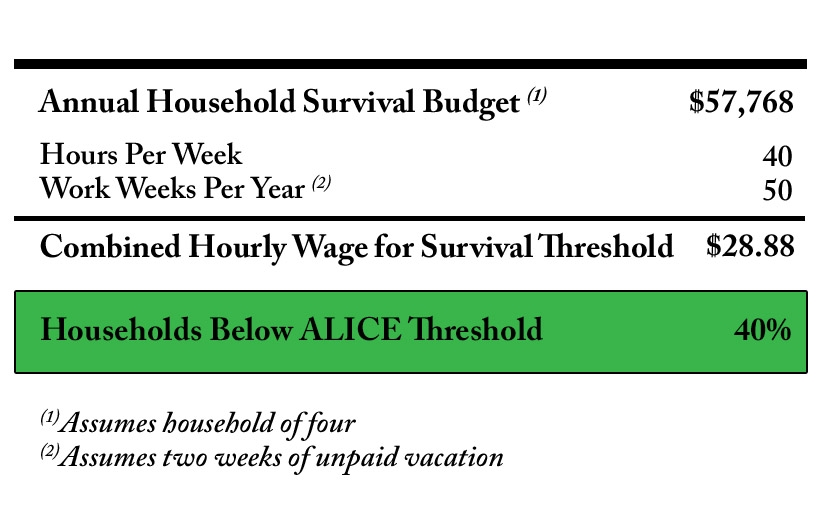United Way releases surprising data on their 2018 Maryland ALICE Project which identifies households that have incomes above the Federal Poverty Level but struggle to afford basic household necessities. That finding is true for both Kent County and the rest of the state.
The report, which uses 2016 data, shows that in Maryland 825,433 households or 38% could not afford basic needs such as housing, childcare, food, transportation, healthcare, and a smartphone. These statistics indicate an increase of three percent from last year’s report. Low-wage jobs, half of all jobs paying less than $20 per hour, and an increase in “gig” and contractual work all contribute to decreased financial stability for working households.
The ALICE Project utilizes standardized measurements to calculate the cost of a bare-bones household budget in each county in each state and quantifies the number of households that cannot afford even that. It includes Household Survival Budgets which have increased steadily, reaching $69,672 for a family of four (two adults with one infant and one preschooler) and $26,052 for a single adult in 2016. These conclusions are an alternative to FPL guidelines, which underestimates the number of struggling families as it does not accurately reflect current, local costs of living.
“At United Way of Kent County, the ALICE findings have reinforced our commitment to addressing the issues stressed in our Community Needs Assessment,” said Glenn Wilson, Board President, United Way of Kent County. “This updated research underscores our findings and highlights the issues that need more attention here and how to provide services to this vulnerable population.”
Following is the Kent County breakdown of Household Survival Budgets and percentage of households living below the ALICE Threshold:
“ALICE isn’t going away,” said Franklin Baker, president and CEO of United Way of Central Maryland “and as this latest report shows, the numbers are only increasing. We must continue to work together to help remove barriers in areas such as housing, transportation, and childcare that prevent so many of our citizens from leading a stable, secure life. Stronger, stable working families mean stronger, stable communities. And that’s something that United Way, our donors, volunteers, staff and partners fight for every day.”
The United Ways of Maryland join more than 540 United Ways in 18 states that are working to better understand ALICE’s struggles. The research will be used to stimulate meaningful discussion, attract new partners and ultimately inform strategies for positive change.
For more information on the ALICE report please go here




Jacqueline kendall says
I have been saying this for years. Hopefully this will help bring some changes.